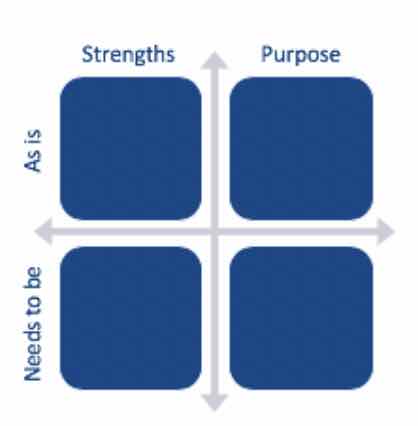It’s not a sure bet these days to expect companies to provide continued employment to anyone. It has nothing to do with employee performance, but everything to do with speed: Companies must rapidly respond to ever-evolving economic and competitive conditions, as well as shareholder demands for greater profitability. But employee reaction time is not always so fast.
Once executives decide it is more profitable to automate, outsource, or merge, a company can make it happen much more quickly than employees can through career changes. It’s not a matter of ability or motivation; it’s a matter of time.
A layoff can go from decision to execution in a few months. Mergers can go from discussion to deal in less than a year. After a company decides it no longer needs old skills and positions, employees cannot upskill fast enough to be good at a new job.
Author Anders Ericsson explains in his book, “Peak: Secrets from the New Science of Expertise,” that it takes thousands of hours of deliberate practice to master something complex. Deliberate practice, the kind necessary to improve, is not just performing easy tasks over and over, but rather, it is a particular method of intensely practicing something in order to get measurably better.
Consider this: There are 2,080 hours in a typical work year, and some, if not most, of that time is probably performing routine work as opposed to practicing the things you want to improve. Clearly, it would take years to get good at a new job that is fairly complex and requires problem solving. Problem solving is the foundation of the emergent knowledge economy. The more complex the work, the more time it takes to improve.
Consequently, companies are asking for significant experience: just above entry level, 2 years; intermediate level, 5 years; and a senior role, 10 years or more.
This is why companies recruit new employees through one door while helping exiting employees out another. There is no time to upskill the displaced employees, as companies move faster than employees.
There is a solution to bridge this dichotomy. Employees must stop reacting and start projecting.
Companies control corporate vision and strategy; therefore, they control employment. However, what is totally in the employee’s control is employability: the ability to always be needed and wanted in the marketplace.
Staying Employable
To protect your career in the current marketplace—to stay employable—think of your career holistically:
1. Self-Awareness. Self-awareness starts with the mindset that you are human and, therefore, you are a continual learner. Keep in mind that you will always be learning at work. This is the very first “skill” you have to learn to stay employable. If you think you are as smart and skilled as you will ever need to be, you will be proven wrong; probably at the most inopportune time possible—when you want a new job.
Regardless of your IQ, how much schooling or experience you already have, you always will have to give examples in an interview showing that you can adapt and learn new things.
2. Manage Performance and Skill Development. Be clear about your strengths and their increasing or decreasing value to your company, as well as in the marketplace. Then gather information to make an educated guess as to what the future employment marketplace will want. In other words, make an “As Is and Will Be” chart outlining skills you have that will be in demand vs. skills you need to acquire for the future.

To inventory your strengths, look at themes in past performance reviews; ask past and current managers and colleagues; recall what one skill is consistently complimented or rewarded.
The number of job postings for different jobs can give you a rough idea about jobs in demand. Review posted job descriptions for a sense of the skills that are repeated or are increasingly requested. Online job boards offer lots of tools to help with this, as can a Bureau of Labor Website called O*NET.
LinkedIn is a treasure trove of this kind of information. Millions of people have their backgrounds online, making it easier for anyone to search skills used in various jobs. Anyone can see and perhaps imitate the path different people took to get their job.
After determining what skills are fading and which are on the rise in the market, compare that list with your current strengths and identify what skills need to be acquired.
Next, identify what parts of your job or field are becoming less valuable to your own employer because of impending automation, consolidation, outsourcing, regulation, or other governmental action. If you read about competitors merging, outsourcing departments, or automating functions, you have to ask how long it will take before it happens at your workplace.
Sometimes those valuable skills can be used in your current company, and sometimes not. Regardless, developing new and increasingly in-demand skills goes a long way toward ensuring displaced employees get re-employed quickly because they are employable.
3. Prepare a Plan and Work It. Create a plan that anticipates the future and take action to stay employable. Since it takes months or years to master the skills necessary to get hired in a job different from the one that was lost, employees constantly must identify and improve skills in demand. That way, that employee will always be relevant.
By following the outline above you have should have an idea of what new skills to develop and seek in order to always be wanted in the job market.
Set goals to start learning something new about tasks or skills every 30 days. Consider this as an investment in your career—it is like taking a course toward the Ph.D. of life. First, get knowledge about the skill. Find people who do the skill well, and ask them how they do it. Read a book. Take a course online or at a community college.
Practice that skill. Volunteer to be on a related project at work. Shift jobs at work. Volunteer in organizations inside the company or in your community. Experience is experience; it doesn’t matter where you get it. If you can use it as an example in an interview, it will demonstrate the skill, it will demonstrate you are self-motivated, and it will demonstrate you are a learner.
By following this process, you always will have the skills necessary to be hired for emerging in-demand jobs. You can gain control over your career by striving to be employable. Your current employer may even help get you get the training and practice, if you discuss your performance, skill development, and holistic career plan with your manager. After all, it probably can benefit both of you.
Dave Denaro is vice president of Keystone Associates. He advises executives, managers, and individual contributors in career planning and transition, as well as leads the Keystone Associates consultants in the Burlington and Nashua offices. Denaro has successfully coached hundreds of clients who wanted to change careers or find a similar job, and those who have considered consulting. He uses a variety of assessment tools when his clients are in the mission and purpose phase, and draws on his corporate and agency recruiting background when they are in the campaign, interview, and negotiation phases. He is a CPI Master Career Transition Consultant and a Certified New Horizons Coach. Prior to joining Keystone in 2008, Denaro recruited and advised leaders, individuals, and teams in financial services and technology firms ranging from partnerships to large global enterprises. He also worked for several years as an agency recruiter. He holds a BA in Sociology from the University of Massachusetts.



